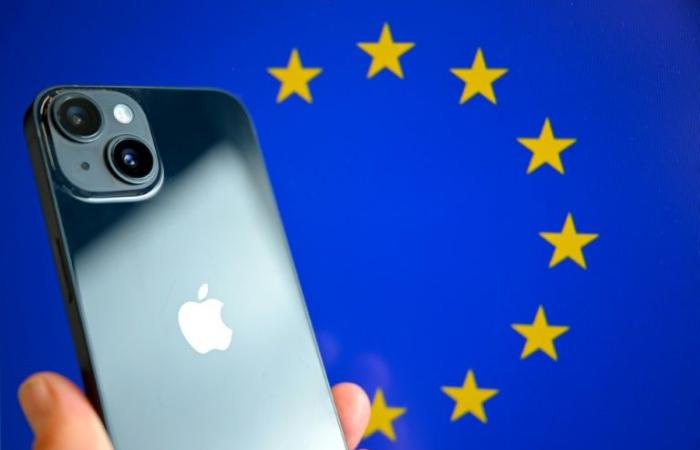The European Court of Justice could on Tuesday challenge a 13 billion euro tax rebate granted to Apple in Ireland and confirm a 2.4 billion euro fine against Google for anti-competitive practices, in two highly anticipated rulings.
The Court of Justice of the European Union (CJEU), the court of last instance, is due to rule from 9:30 a.m. (07:30 GMT) in these two long-running cases with heavy financial stakes for these American tech giants.
The Apple case dates back to 2016 when Brussels ordered the manufacturer of the famous iPhone to reimburse 13 billion euros to Ireland, criticizing a tax reduction that amounted to illegal state aid.
The sum corresponds to the profits from favorable tax treatment between 2003 and 2014 in this country where Apple had repatriated all of its revenues generated in Europe (as well as in Africa, the Middle East and India).
At first instance, the EU General Court annulled the decision of the European executive in 2020, a resounding slap in the face for Competition Commissioner Margrethe Vestager, who was responsible for the case. But the Commission appealed to the CJEU.
New twist in November 2023: in a non-binding opinion, but generally followed by judges, Attorney General Giovanni Pitruzzella challenges Apple’s victory.
He proposes that the court annul the judgment and refer the case back to the EU General Court “so that it can rule on the merits again”. According to him, the court “made several errors of law” and it is “necessary” for it to “carry out a new assessment”.
The Luxembourg-based CJEU is due to decide on Tuesday whether or not to follow this opinion, which would relaunch the procedure and could force the Californian group, in the event of defeat, to repay 13 billion euros in tax arrears to Ireland, as Brussels had initially decided.
Read more
– Record for the biggest fines –
In the Google case, judges will have to confirm or not a fine of 2.4 billion euros imposed in 2017 on the Mountain View group for abuse of a dominant position on the online search market. This is the second largest financial penalty ever imposed by the EU in an antitrust case.
Google is accused of favoring its price comparison service Google Shopping by making its competitors virtually invisible to consumers. It has been forced to change the way its search results are displayed to comply with European Union requirements.
Seized by the Californian giant, the EU General Court ruled in favor of the Commission, in an initial judgment delivered in November 2021. But Google filed a new appeal, demanding the cancellation of the fine.
The CJEU is due to decide on Tuesday morning whether it will follow the advocate general, Juliane Kokott, who proposed in January to confirm the sanction.
The case began in 2010 with the opening of an investigation by Brussels following complaints from competitors.
This case is one of the major disputes opened by Brussels against Google, which holds the record for the two largest fines ever imposed by the European executive for anti-competitive practices.
The $2.4 billion fine for Google Shopping was a record amount at the time it was handed down. It was surpassed in 2018 by another $4.3 billion fine for abuse of a dominant position by the Android operating system for mobile phones.
In total, Google has been fined more than 8 billion euros for various anti-trust violations.
The group is also in the crosshairs in the United States and the United Kingdom.
Since Monday, it has been facing its second major trial in less than a year against the US government, which accuses it of stifling competition in online advertising. On Friday, the British competition authority, the CMA, accused Google of abusing its dominant position in the same advertising market that represents its main source of revenue.
aro/jca/LyS






